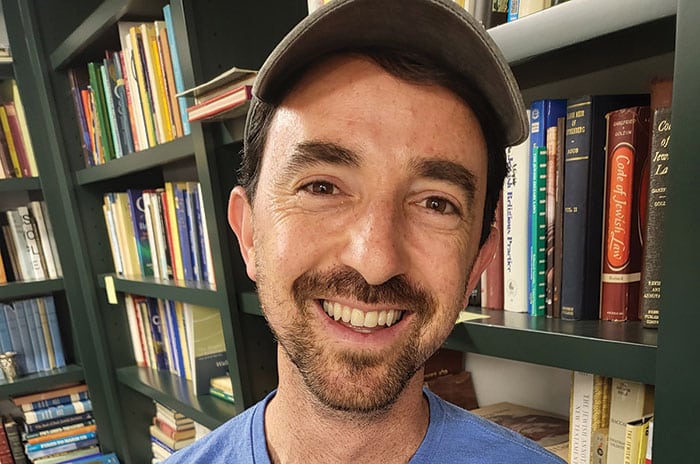
The drive to Temple Etz Chaim in Thousand Oaks goes past the vast open spaces, gentle hillsides and blue skies. For Rabbi Ari Averbach, Etz Chaim’s senior rabbi, who grew up four miles away in Agoura Hills, it’s a trip back home. “It’s amazing being here,” the rabbi told the Journal.
“I would say I know one-third of the community from childhood,” he said. “Or they know my sister, my brother or somebody in my family.” While he wasn’t a member of Etz Chaim growing up, he spent time there at the b’nai mitzvahs of friends. “They’ll always see you as a kid if you grew up at the synagogue. To come back is a neat thing.” Some in the Etz Chaim community have told the rabbi that since they knew him as a child, they have difficulty calling him rabbi. “I get it,” Averbach shrugs.
Before he was called “Rabbi,” Averbach wanted to work in his first love, film and television. He grew up making movies with a friend who is now filmmaker and a member at Etz Chaim. That’s all they did.
“We didn’t play sports,” the rabbi says. “Other people knew stats about baseball and basketball. I knew none of that. I knew Oscar winners. Pick a category. I could watch the end credits of a movie, and I knew every casting director and cinematographer.”
He attended the film program at NYU’s Tisch School of the Arts. After graduation, he worked at a talent agency and then for a production company. It didn’t take long for Averbach to realize he was on the wrong career path.
“One day we closed a huge deal at the talent agency, about $80 million,” he said. “We celebrated for eight minutes. Then we went back to work because so many actors were looking for jobs. Nobody ever was happy. I worked easily 16-hour days during the busy season, I was paid little, perhaps illegally, modestly.”
A call from his mother changed his path. A speaker from the humanitarian organization Jewish World Watch was going to speak at Valley Beth Shalom, their synagogue. She thought he should go.
A call from his mother changed his path. A speaker from the humanitarian organization Jewish World Watch was going to speak at Valley Beth Shalom, their synagogue. She thought he should go.
Averbach drove to the lecture. He listened closely to the speaker and he was moved. At work the next day, he wrote down everything he did, and concluded he was a glorified errand boy. “After three or four years, I was not (really) working in the film industry,” he said. He gave himself two months, then would search for something new.
He began volunteering with Jewish World Watch while teaching Hebrew school and working with a Birthright group. But he needed a career. He had to meet with Valley Beth Shalom’s legendary Rabbi Harold Schulweis regarding a Jewish World Watch matter. “I grew up with Rabbi Schulweis as my rabbi. He was so revered I felt as if even his wife called him ‘Rabbi.’ It was his name, his role, his identity.”
Averbach didn’t think Schulweis would remember him; he was wrong. Schulweis advised him to enroll in the Ziegler School of Rabbinic Studies at American Jewish University. “I don’t think so,” Averbach told him. “There’s a job at HBO.” Schulweis stood firm.
Finally, Averbach asked what was the most meaningful part of being a rabbi. Schulweis said “it’s the small moments with people, standing under the chuppah with a couple, pronouncing them husband and wife, sitting with a family at a hospital, being with a family when a baby is born – those are the moments that are incredible. That’s what defines my career.”
When it came time to look for a senior rabbi position, the goal was to live near family. “My wife grew up in Calabasas … it’s such a blessing to be here.”
Sitting at his busy desk in the sunny, book-lined office, the rabbi thought for a moment:
“How many of our congregants are kids who grew up here, promised they never would move back, had their second kid and moved right back down the street from where they grew up? And now they send their kids to Religious School here.”
Fast Takes with Rabbi Aberbach
Jewish Journal: If you could have a super-power what would it be?
Rabbi Averbach: Being able to really be present for people would be incredible.
J.J. Best book you ever have read?
Rabbi Averbach: One book that really turned me on to reading more was David Sedaris’s ‘Me Talk Pretty One Day.’ It made me go from ‘reading is a chore’ to reading anything I can get my hands on.
J.J. Favorite Jewish food?
Rabbi Averbach: Home-baked challah.










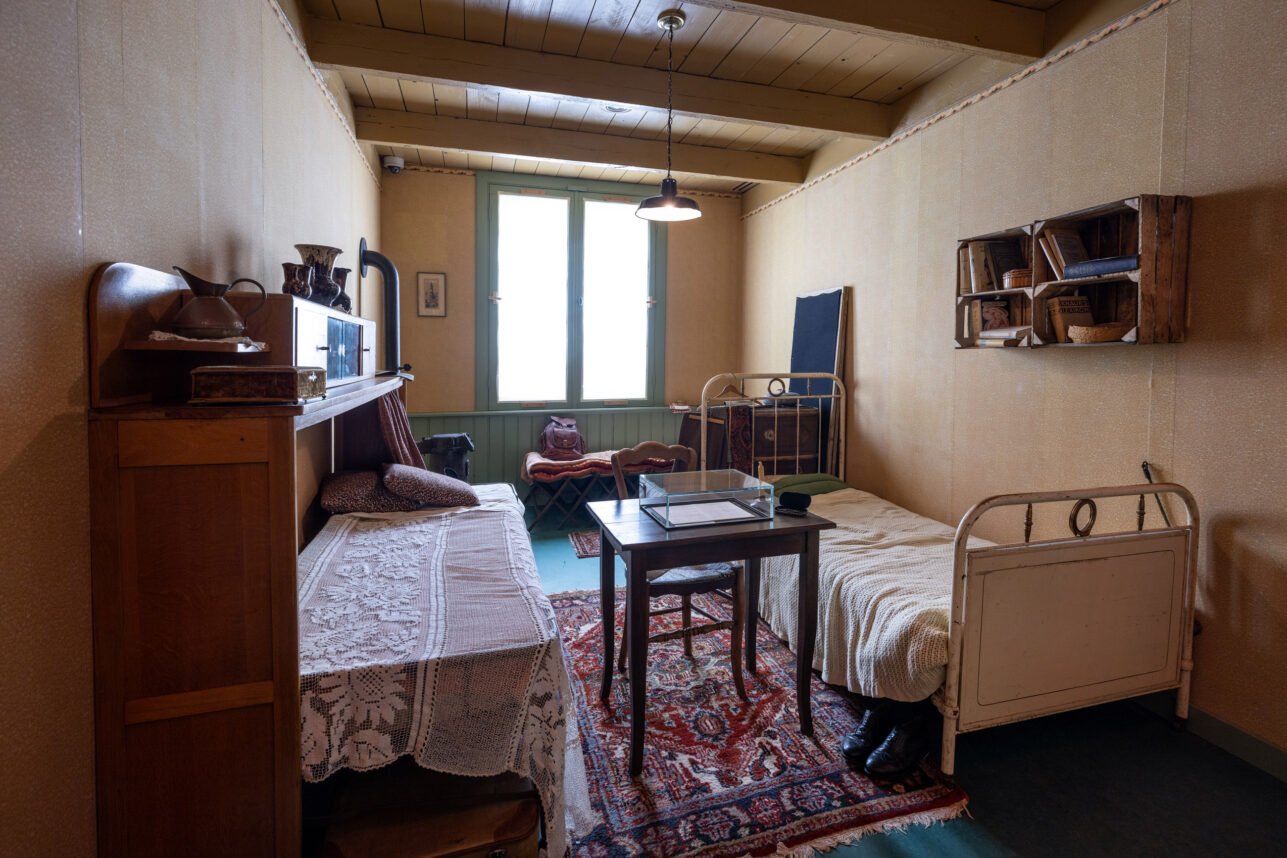

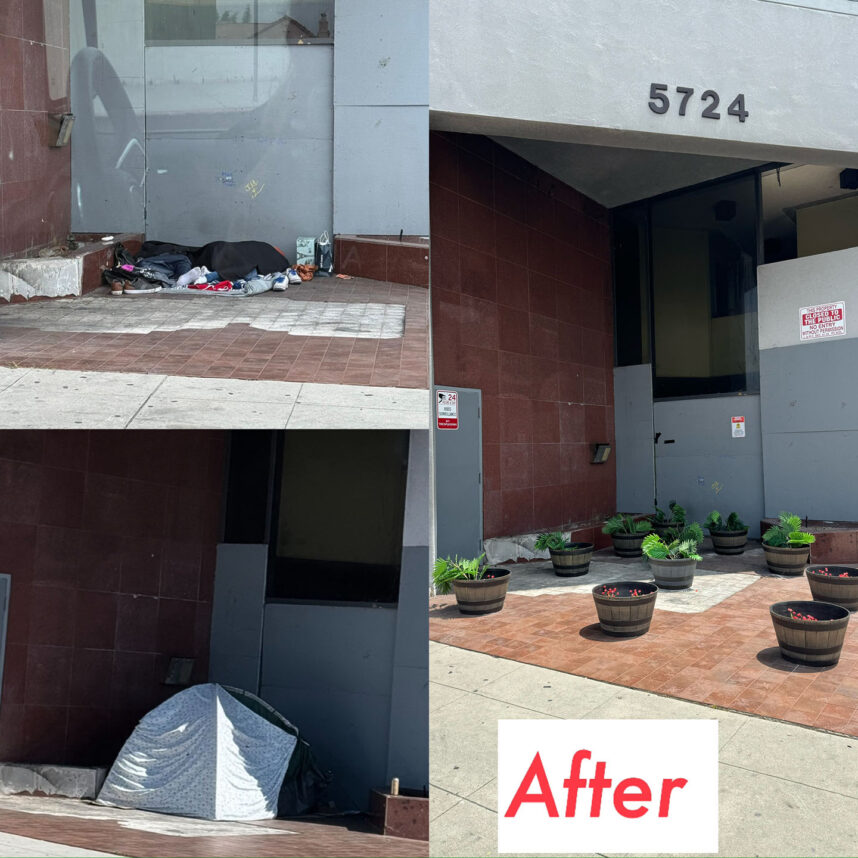
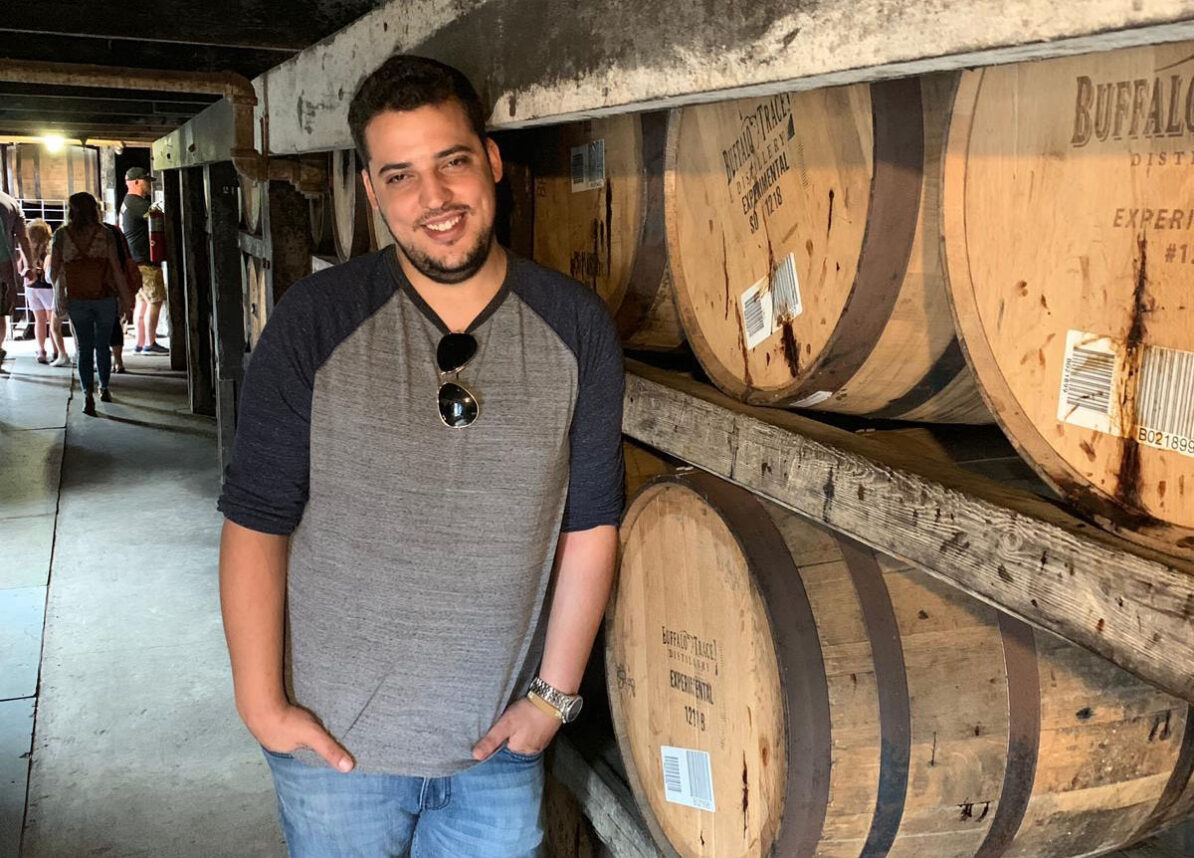
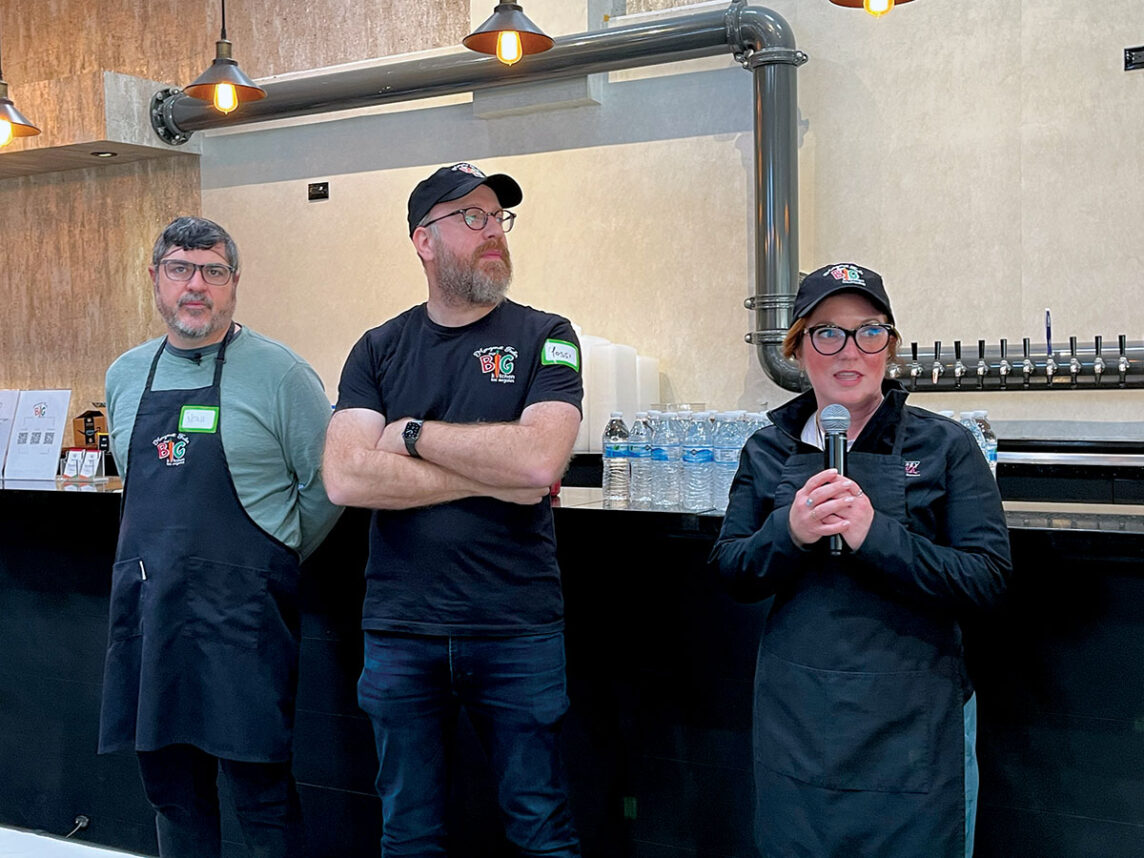
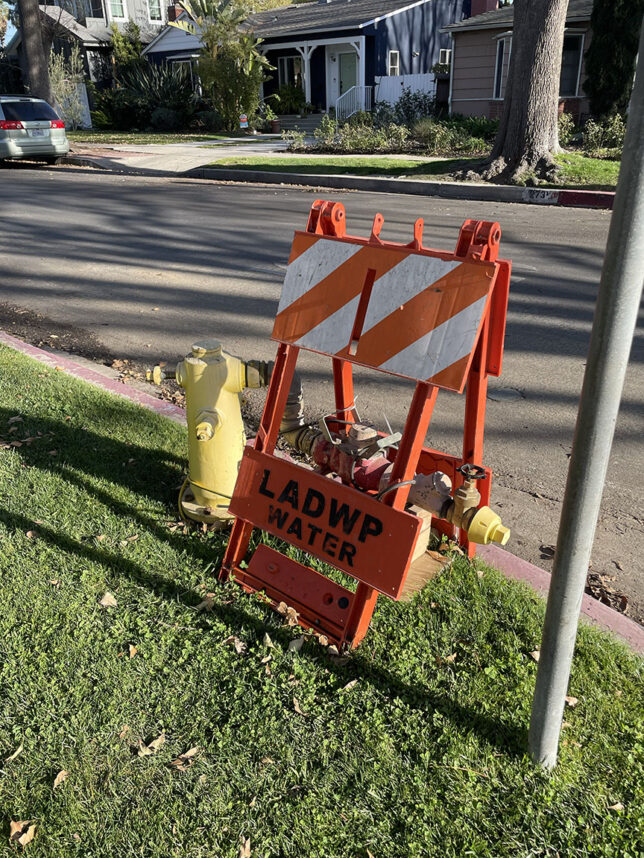




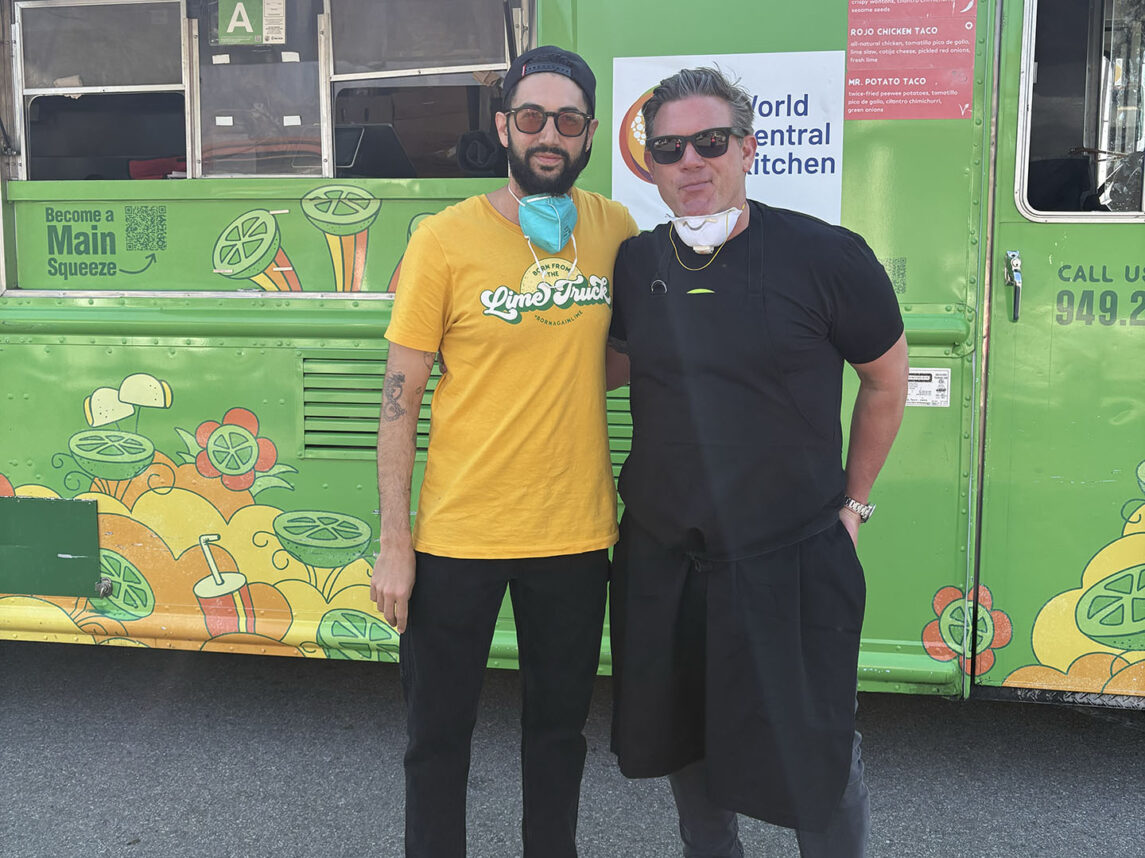


 More news and opinions than at a Shabbat dinner, right in your inbox.
More news and opinions than at a Shabbat dinner, right in your inbox.